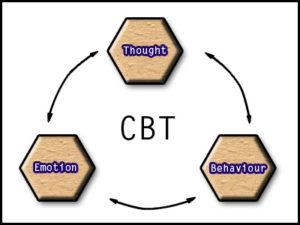Cognitive Behavioral Therapy is a psychosocial intervention and comes in various sizes and shapes and helps you manage the problems by changing the way you behave. It has found to be useful for patients with lung cancer. It targets solving current problems and changing unhelpful patterns. It helps to reduce the psychological interventions often faced by patients suffering with cancer. It emphasizes on identifying critical behaviors and evaluate them for frequency, duration etc. It works to identify the multiple effects cancer can have on a patient.
Helping Patients with Lung Cancer
CBT is a structured and flexible psychological intervention that helps patients with cancer. In many studies, the positive effects of cognitive behavioral therapy help in improving their quality of life. It works to reduce the effectiveness in commonly seen psychiatric disorders.
Improving Quality of Life
CBT has been found to help significantly with reducing the symptoms of lung cancer. As treatment of lung cancer often affect the patient mentally and physically, these therapies help to aid in symptom management and improve the quality of life. Even after the treatment of CBT has been finished, the useful and practical strategies are useful in everyday life.
CBT Therapies
The therapies include cognitive restructuring, skill training, visual imagery etc. These techniques are often recommended as treatment for lung cancer pain and the sessions help patients to cope with the concerns associated with living with cancer.
You and your therapist work together to agree on the patterns of behaviors that needs to be improved. It can be provided in different forms such as in groups or individually.
Cautions
It may not be suitable for those who have complex mental health needs. For those who are emotionally uncomfortable, they should not continue with the therapies. Some argue that CBT also addresses current problems and do not address the underlying causes behind it.
Though there is currently no evidence available to determine the effectiveness of CBT techniques for pain in lung cancer patients but works to cure the symptoms and pain involved in cases studied.
What are your views about CBT as an alternative therapy for lung cancer? Share with us in the comments section.
The post offers information for educational purposes only. It is certainly not a substitute for medical advice. You should always consult your doctor before practicing any therapy.

